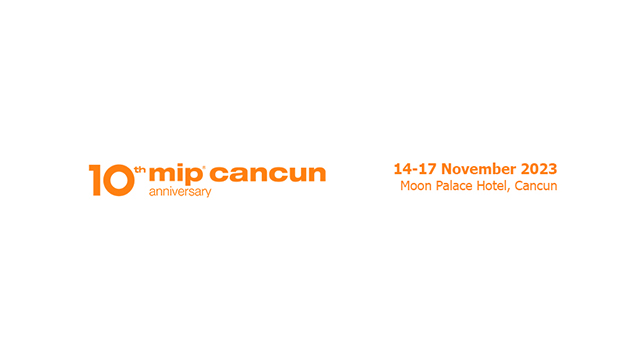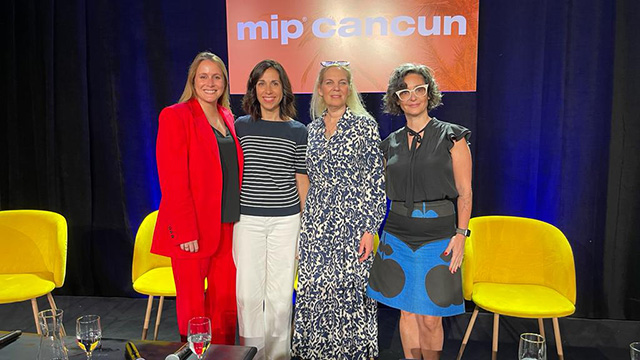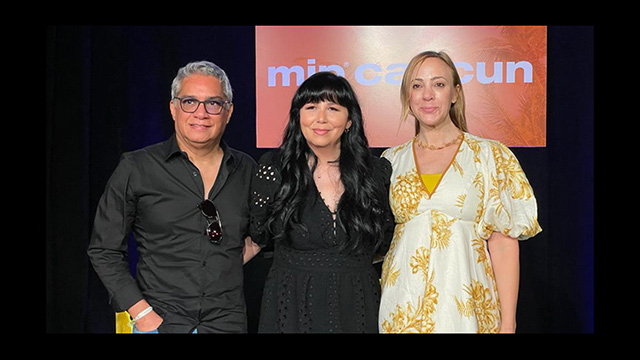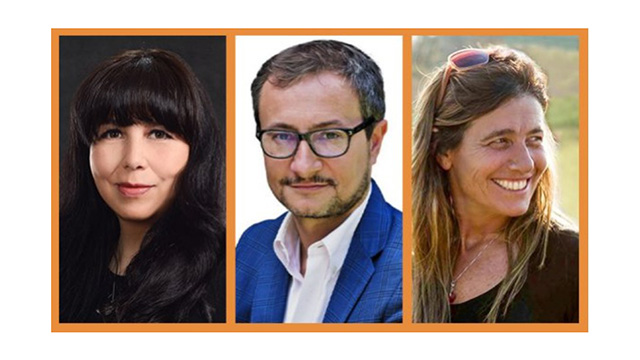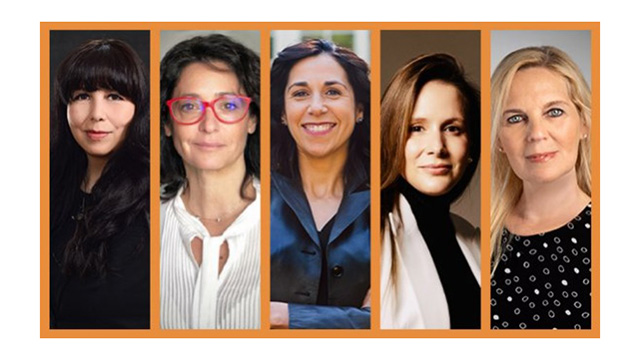During the MIP Cancun panel Cross Border Production Alliances with the Majors, moderated by TV Latina’s Elizabeth Bowen-Tombari, Telemundo Streaming Studios/Underground Producciones’ Pablo Culell and Julia Freid spoke about the company’s creative and production initiatives for content that transcends borders and resonates with viewers around the world.
The conversation began with Bowen-Tombari, editor of TV Latina, asking about Telemundo Enterprises’ 2019 acquisition of Underground Producciones, particularly the synergies between the two companies and the expansion of Underground Producciones.
“The learning curve was quite significant for us with Underground, with which we had had an important presence in Argentina,” explained Culell, the VP of original content development and director of teleseries at Telemundo Streaming Studios/Underground Producciones. “We had always made very particular content, in a unique style that represented us and with smaller budgets. However, over the years, we had managed to have an important presence, and with El marginal, we achieved an interesting international visibility.”
Regarding the merger of Underground Producciones with Telemundo Enterprises, the executive said: “We learned about each other’s strengths throughout the years. We worked and projects during the pandemic, and last year, we were able to launch the latest productions developed prior to the pandemic. We’re a stronger team now, led by Juan Ponce [the senior VP and general manager at Telemundo Streaming Studios], and we speak the same language.”
The conversation then explored El marginal, which began as a broadcast production, with a debut for its last two seasons on Netflix. Freid, the art director of Telemundo Streaming Studios/Underground Producciones, commented that there were several changes in terms of scale. “When we started with Telemundo, we had already made the first three installments of El marginal for public television in Argentina,” she noted. “These first seasons were made in a real prison where many well-known people had served sentences.”
She added: “When we joined Telemundo and had [a series of conversations about El marginal]. We decided to build a real jail in an abandoned factory. It was a big investment, but we felt that for it to be a strong project, the thickness of the walls, textures, and everything in between had to reflect reality as best as possible.”
From a creative standpoint, Culell commented that bringing the local series to global audiences had to do with the quality of the story. “We were aware that the series resonated with worldwide viewers once it [was featured] on Netflix. It was a low-key production made for public television at first, but we wanted to tell the story to the world. We always thought about the types of stories we wanted to see as viewers and then worked on developing them. Of course, we also considered market trends, listened to clients and analyzed variables. The prison world was something that Sebastián Ortega [senior VP and creative director of Underground Producciones/Telemundo Streaming Studios] was always interested in.”
Culell explained that one of the things that caught their eye was before the first season’s premiere in Argentina. “The series competed in a festival in France at Series Mania and won first prize. The jury told us that it was a raw portrayal of the prison world, but for them as viewers and in Europe, the series showed something exotic: the Latin American prisons. For them, it was very striking, unlike what they could be in other parts of the world. It also included dark humor, which made it much more relatable.”
Meanwhile, El secreto de la familia Greco produced by Telemundo Streaming Studios/Underground Producciones, is a story based on real-life events, which the company had already worked on in a previous version, but years later had the opportunity to revisit it.
The story centers on the Grecos, during the 1980s in Jalisco, Mexico, who, behind the facade of being a traditional family, is actually a clan of criminals who kidnap, torture and murder their victims if they do not get a ransom, led by Aquiles Greco, a retired officer who is disciplined and authoritarian, willing to do anything to maintain the status of his family. “Artistically, it was a rewarding experience,” Freid said.
“The Mexican audience is very broad, and it was important to get into that market as well,” said Culell. “It was a story that could be easily adapted. [We always look for] stories that are in some way local, but can be represented and adapted anywhere in the world.”
The conversation then turned to the evolution from working on broadcast or pay TV to streaming platforms and the differences in budgets and reach that these SVOD services provide. “The platforms are looking for high-quality productions,” said Freid. “[This led] the Telemundo team to support, so there was an important investment in construction and setting.”
“Platforms are looking for local content that addresses idiosyncrasies and the story’s unique voice,” said Culell. “And, of course, it should have a universal appeal so that it can be understood anywhere in the world. Whenever we are asked to do something, it has to do with that, the unique way of telling the story. That’s what Telemundo was also interested in when they decided to acquire [Underground Producciones].”
Culell said that working with streaming platforms gives them greater freedom since “what they are looking for is something different, not more of the same. It has to do with not going with already established formulas, but with other types of proposals.”
Bowen-Tombari then asked about Diario de un gigoló, which has generated buzz recently. “We are doing something different [with this production] because it tells the story of forbidden love, but where the woman is not the cliché often portrayed in telenovelas: the suffering victim,” explained Culell. “The women in this story are at the forefront, they make decisions and have leadership. The man is the sexual object. So there’s a paradigm shift. I think that’s what garnered the public’s attention.”
 TVLATINA
TVLATINA
